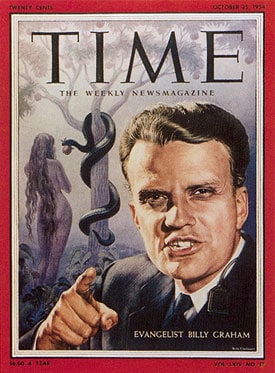James Akenson
Once upon a time in a galaxy long ago I wrote a piece about Tennessee Tech University PhD student Randy Williams. The title “Randy Williams: Just for the Hell…Or The Heaven…Of It” fit nicely with what Randy Williams thought would be the focus of his PhD research. Turns out he was spot on. Now Dr. Randal D. Williams’ dissertation focused on “The Sacred and Profane Dichotomy in Early Country Music: 1921-1957.”


What’s this you say. Sacred and Profane. Sounds high falutin’ like some professor would write. Speak English you say. Well, Sacred and Profane…minus all the heavy-duty philosophers mentioned and quoted is pretty simple. Don’t try to read…or even watch a YouTube video…of Mircea Eliade discuss the Sacred and Profane. Don’t read Jean-Paul Sarte or watch a YouTube video on existentialism.

Let’s use the KISS recommendation. Keep It Simple, Stupid. The Sacred and Profane deals with the issues in every culture, but particularly in terms of Country Music with Evangelical Protestant Christianity. In other words when you think of the U.S. South you think about the Bible Belt and all those Baptists and similar Protestants.

They believe the Bible is literally true, has all the answers to life’s problems, that you must accept Jesus Christ as your Lord and Savior, and you can talk directly to the almighty by praying. That’s just for starters. You don’t need to know about the Armageddon, the second coming of Christ, and Biblical eras known as dispensations.
Yes. The Sacred and Profane is all about tension between good and evil, right and wrong, saved and lost, with lots of temptation and attempted resistance, sinning on Saturday night and being in church Sunday morning. It’s not surprising that Randy Williams, Andrew Smith in Tasmania, and I wrote an article about the Sacred and Profane using Randy’s dissertation as the spring-board.
You can check out the 2023 International Country Music Journal. Jimmie Rodgers, The Father of Country Music, and The Carter Family provided a special focus. The article ended at 1957 which is commonly seen as the beginning of The Nashville Sound with string sections, backup singers, and a smoother sound.
That means, of course, that something needs to be said about the Sacred and Profane since 1957 to the third decade of the twenty-first century. Surprise, surprise, surprise, Gomer. Randy, Andrew, and I have got it covered. So, we’re working on an article about Sacred and Profane in Country Music since 1957.
We’re particularly emphasizing very recent songs since it would be easy to think that today’s modern U.S….even the U.S. South…just ain’t what it used to be. After all, fewer Americans have a religious preference, there are more churches without a denominational affiliation, and even the dominant Southern Baptists in the South are losing members. Right! Quoting Waylon Jennings. WRONG!
The Sacred and Profane continues to be significant in Country Music. Let’s take a look at some very recent Country Music songs. We’ll begin with Tennessee Orange a Country Aircheck/Mediabase Country Airplay chart topper.

Megan Maroney in the summer of 2023 may seem like an unlikely starting point to demonstrate the continued presence of the Sacred and Profane and the evangelical Protestant manifestation in Country Music. Then again, orange is indeed a Protestant color. Trust me, it’s true, and goes back to lots of unpleasantries in Ireland between Protestants and Catholics
The ‘Big Orange’ University of Tennessee sits in the Bible Belt of the U.S. South. The love song references a football rivalry in Knoxville at Neyland Stadium with another deep South team, the University of Georgia. Lyrics state clever thoughts including:
I met somebody and he’s got blue eyes
He opens the door and he don’t make me cry
He ain’t from where we’re from
But he feels like home, yeah
He’s got me doin’ things I’ve never done
In Georgia, they call it a sin
I’m wearing Tennessee orange for him
A reference to blue eyes suggests that Maroney doesn’t cross racial boundaries. The straight male-female relationship reinforces traditional gender roles comfortable to well-mannered Southerners who still open doors in deference to a weaker sex. Maroney seemingly implies some sexual engagement as she’s “doin’ things I’ve never done,’ then pulls back to state she’s wearing Tennessee Orange.
Later she does reinforce traditional gender roles telling her mother not to tell daddy. A reference to ‘feels like home’ further implies staying with core values and fits within Country Music references to Down Home for those white Southerners who migrated out of the South in search of better jobs post World War 2.
A specific mention and reference to sin while playful, implies that the Southern culture of her native Georgia continues to believe in a dichotomy of the Sacred and Profane. Later, Maroney mentions knowing right from wrong.
Such things reinforce Megan Maroney’s authenticity, that she is for real and a true Country Girl. Her deep South roots, references to Southeast Conference football rivalries, and telling a believable story of traditional gender roles still ring true to Southern Baptists and evangelical Christians in general.
Sin exists which means that salvation is needed to save the lost. In addition, the Tennessee Orange video places her in traditional settings. The video opens with a preschool girl in her parents living room wearing a University of Georgia cheerleader uniform and two red bows in her hair.
The video shows a straight relationship and clearly indicates intimacy with her partner. Scenes on Broadway Avenue in Nashville including Roberts Western World, a vintage blue pickup truck in the country in which she plays her guitar, picking out a Johnny Cash vinyl album in a record store, sitting a diner with wall juke boxes, and mentioning a romantic historical past in the iconic song “Rocky Top” further establishes Maroney’s authenticity. She’s for real a Country Girl, a Country Music artist.

Amanda Kate Ellis’ Tequila and Jesus also shows the contemporary 21st century presence of the Sacred and Profane. Ellis finds life difficult the way the “world’s spinning round” and once evening comes she achieves inner peace “Thanks to King James, salt, and lime.”

The reference isn’t just to any Bible, but to the King James version symbolic with its roots deep in conservative Evangelical Christianity. The King James version of the Bible isn’t viewed as symbolic or metaphorical but is absolute literal truth and guidance for daily life. With emphasis on John 3:16 and the personal commitment of accepting Jesus Christ as Lord and Savior.
Ellis proclaims the power of both extremes of the Sacred and Profane dichotomy as she states “Heaven knows I’d fall to pieces. It wasn’t for tequila and Jesus.” The tension between both ends of the Sacred and Profane dichotomy work their power in the life of Ellis.
The video of Tequila and Jesus finds Ellis on the streets of Ft. Worth, Texas, traditionally viewed as more country than Dallas, by which she immediately establishes an element of authenticity as she wears a cowboy hat, western shirt, jeans with a belt and large buckle, and a long duster coat.
Her long blond hair and wide smile further connect her to traditional gender roles. Her entry into a bar includes playing pool with western dressed men and a cattleman reference clearly visible in neon outside the establishment. A sign in the bar proclaims that men with without shirts and shoes receive no service.
The sign also proclaims women without shirts or shoes receive free drinks. The humor further establishes an authentic division of traditional gender roles most frequently upheld within Country Music culture that males pursue females.
The fiddle and steel guitar further used in the instrumentation suggest that Amanda Kate Ellis lives an authentic Country Music existence as she proclaims the Sacred and Profane dichotomy.
Sophia Scott’s official world video premier of Boots, Jeans, and Jesus took place at 9:45am on 20 July 2023. Scott’s dilemma of the Sacred and Profane involves various temptations including alcohol, but revolves around good and evil and the pleasures of sex.
Her “barstool confession” which she feels will make her “fall from heaven” involves a “guilty pleasure” of a male in a Stetson, and “Sunday service ain’t for two days.” Scott reinforces her awareness of traditional gender norms by reference that she is “Thinking things that ain’t lady-like.”
She also mentions that she should be taken to the chapel plus references the book of Genesis and the temptation to “bite the apple.” She feels that the only things keeping her from engaging in sexual pleasure is “boots, jeans, and Jesus.”
It might be that Jesus can help her keep on her boots and jeans as she is “hanging on a prayer.” It might help her retain her purity as she mentions “no I ain’t never.” Yet in a concluding tag she states “C’mon boy” and finishes with “God help me.”
Falling for sexual pleasure, heterosexual pleasure, believing it isn’t lady like and thinking about Sunday church two days away certainly fits Sophia Scott in the Sacred and Profane universe in all its complexity with Biblical guilt and pleasure.
So now. There are three examples from the third decade of the twenty-first century. I’m only scratching the surface. I didn’t even have space to share one of my favourites God Whispered Your Name by Keith Urban. It’s a Trojan Horse of sorts for the Sacred and Profane world of Evangelical Protestant Christianity. It’s laced with terms about being lost, saved, and baptized. And….just now going over this ‘one-last-time’ I learn of Tiera Kennedy’s Jesus, Mama, My Therapist. The Sacred and Profane just won’t stop!

The Southern novelist William Faulkner said that “The past isn’t dead. It isn’t even past.” Despite what people think about the condition of the world today, not to worry.
The Sacred and Profane world view of evangelical Protestant Christianity isn’t dead, it isn’t even past. It lives on into the third decade of the twenty-first century just fine in many Country Music songs. Folks will continue to be tempted and tried. They’ll give into sin. They’ll feel guilty. They’ll ask Jesus to save them and forgive them. And repeat again and again.






